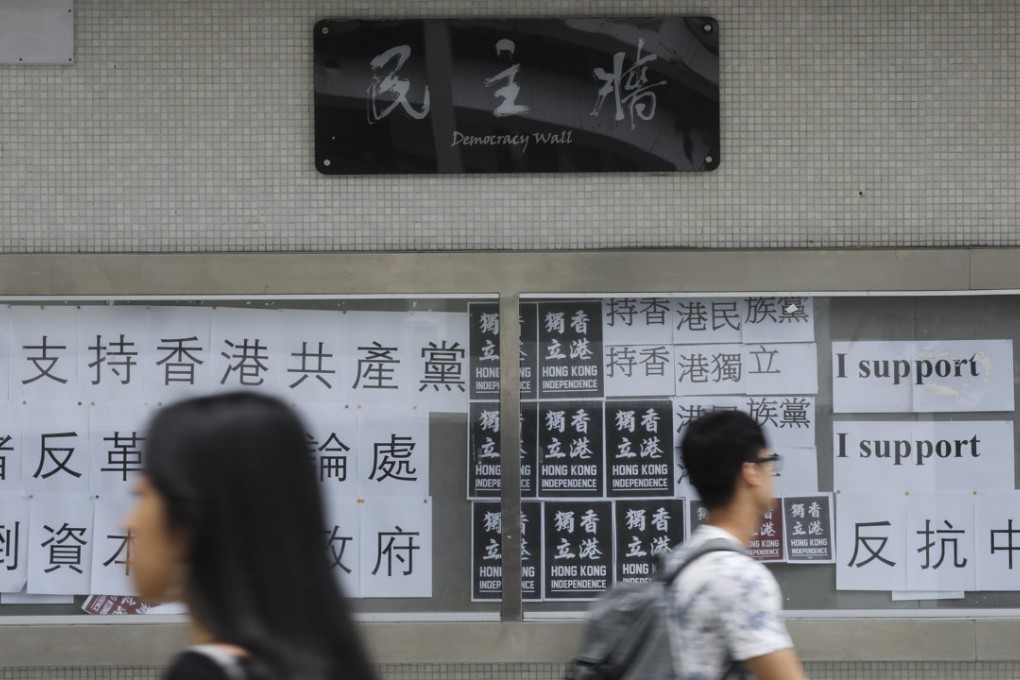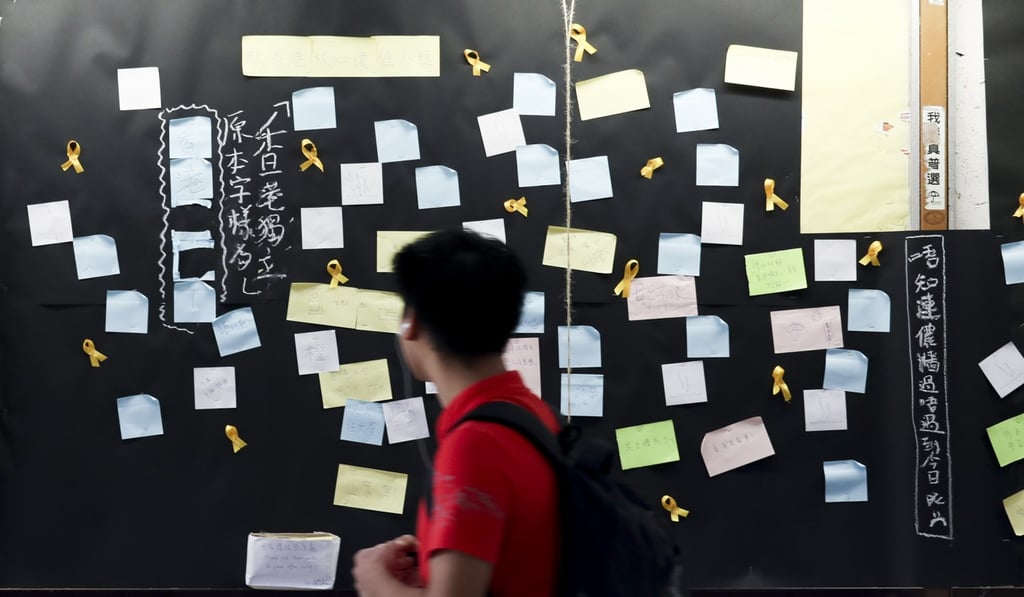Hong Kong universities tell students to remove independence banners, as top China diplomat says city’s young need enhanced education on mainland culture
Pro-independence slogans seen on University of Hong Kong and Polytechnic University campuses two days after Hong Kong National Party was banned on national security grounds

Banners in support of Hong Kong independence were on display on two university campuses two days after a separatist party was outlawed on national security grounds, even as the management urged the student unions concerned on Thursday night to remove them or take appropriate action.
As the controversy intensified, China’s top diplomat, Yang Jiechi, told a visiting delegation of Hong Kong professionals in the capital that solving youth problems was key to tackling the issue of independence.
Yang, a member of Beijing’s coordination group in charge of Hong Kong and Macau affairs, stressed the need to better educate the city’s youth on Chinese culture, as he reiterated the central government’s zero-tolerance policy against independence advocacy.
“He [Yang] called on us to help youngsters achieve upward social mobility, as well as with housing, employment and livelihood issues,” Thomas Lee Kang-bor, the head of the delegation, said.

The legal implications for members of the public and news organisations have yet to be clarified, but legal experts said expressing support for the party without taking concrete action such as trying to join would not be considered unlawful.